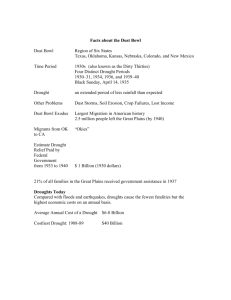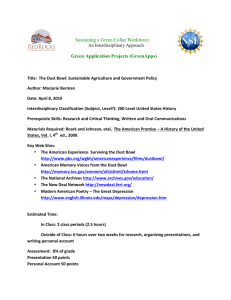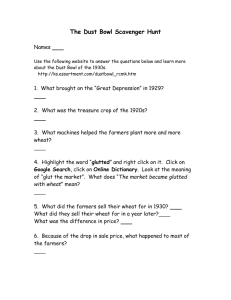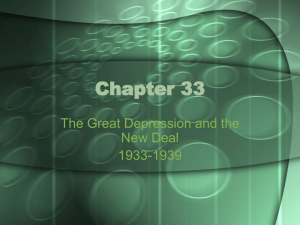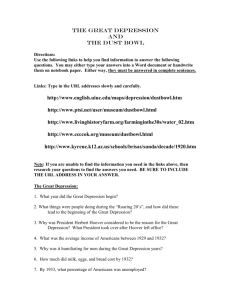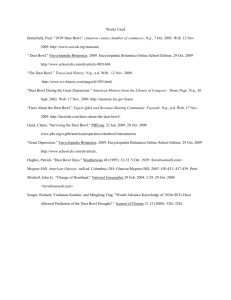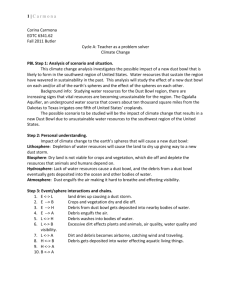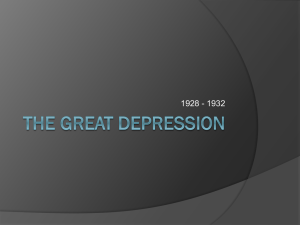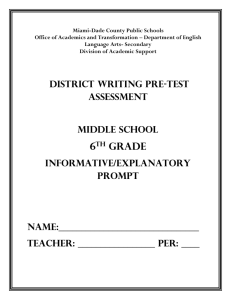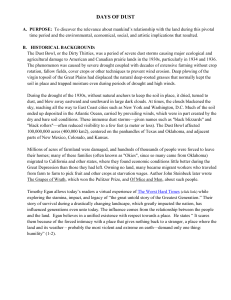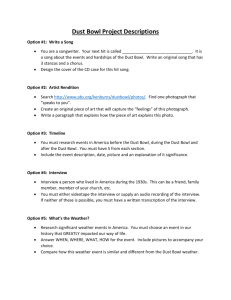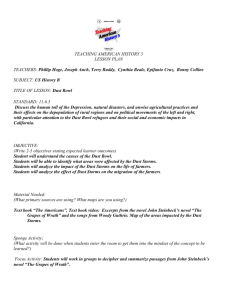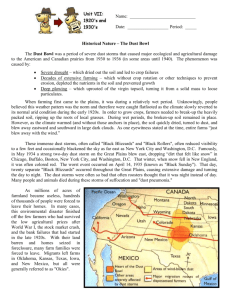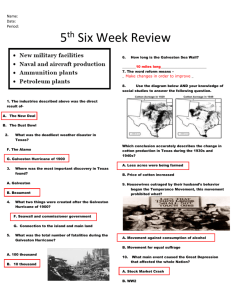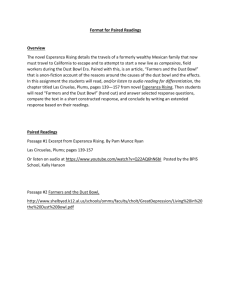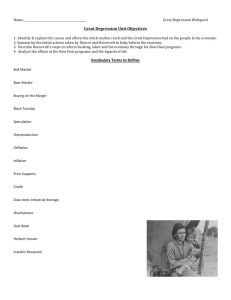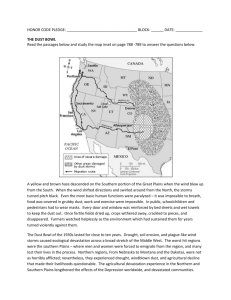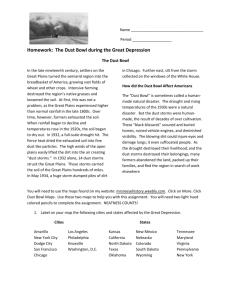Water Matters-Dust Bowl
advertisement
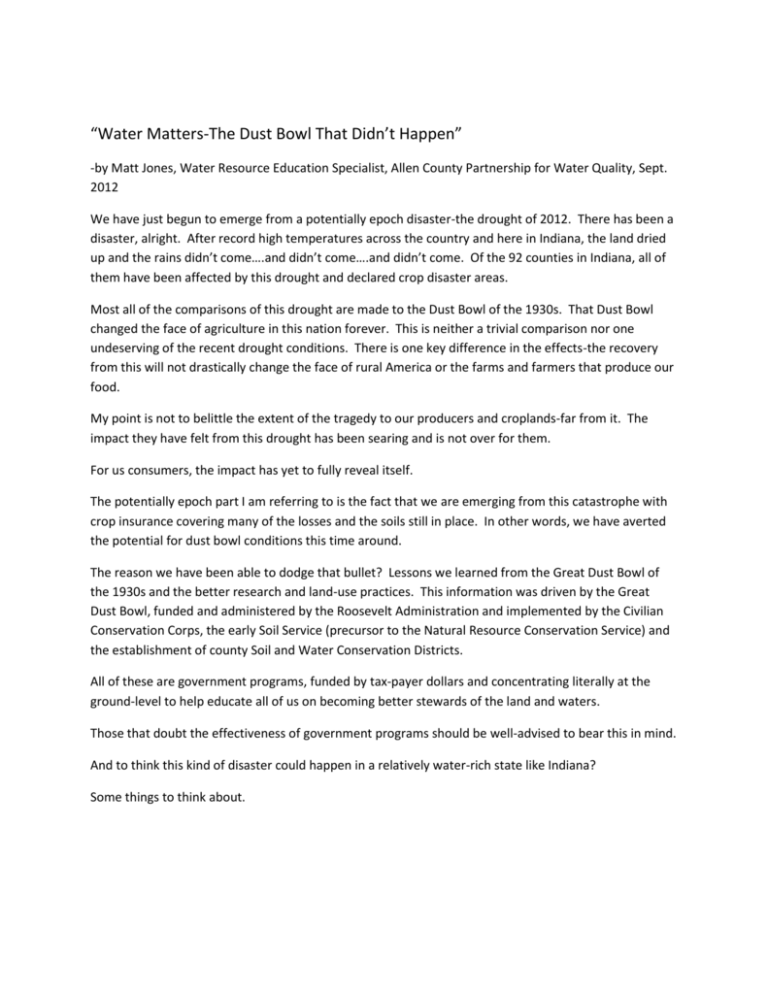
“Water Matters-The Dust Bowl That Didn’t Happen” -by Matt Jones, Water Resource Education Specialist, Allen County Partnership for Water Quality, Sept. 2012 We have just begun to emerge from a potentially epoch disaster-the drought of 2012. There has been a disaster, alright. After record high temperatures across the country and here in Indiana, the land dried up and the rains didn’t come….and didn’t come….and didn’t come. Of the 92 counties in Indiana, all of them have been affected by this drought and declared crop disaster areas. Most all of the comparisons of this drought are made to the Dust Bowl of the 1930s. That Dust Bowl changed the face of agriculture in this nation forever. This is neither a trivial comparison nor one undeserving of the recent drought conditions. There is one key difference in the effects-the recovery from this will not drastically change the face of rural America or the farms and farmers that produce our food. My point is not to belittle the extent of the tragedy to our producers and croplands-far from it. The impact they have felt from this drought has been searing and is not over for them. For us consumers, the impact has yet to fully reveal itself. The potentially epoch part I am referring to is the fact that we are emerging from this catastrophe with crop insurance covering many of the losses and the soils still in place. In other words, we have averted the potential for dust bowl conditions this time around. The reason we have been able to dodge that bullet? Lessons we learned from the Great Dust Bowl of the 1930s and the better research and land-use practices. This information was driven by the Great Dust Bowl, funded and administered by the Roosevelt Administration and implemented by the Civilian Conservation Corps, the early Soil Service (precursor to the Natural Resource Conservation Service) and the establishment of county Soil and Water Conservation Districts. All of these are government programs, funded by tax-payer dollars and concentrating literally at the ground-level to help educate all of us on becoming better stewards of the land and waters. Those that doubt the effectiveness of government programs should be well-advised to bear this in mind. And to think this kind of disaster could happen in a relatively water-rich state like Indiana? Some things to think about.
